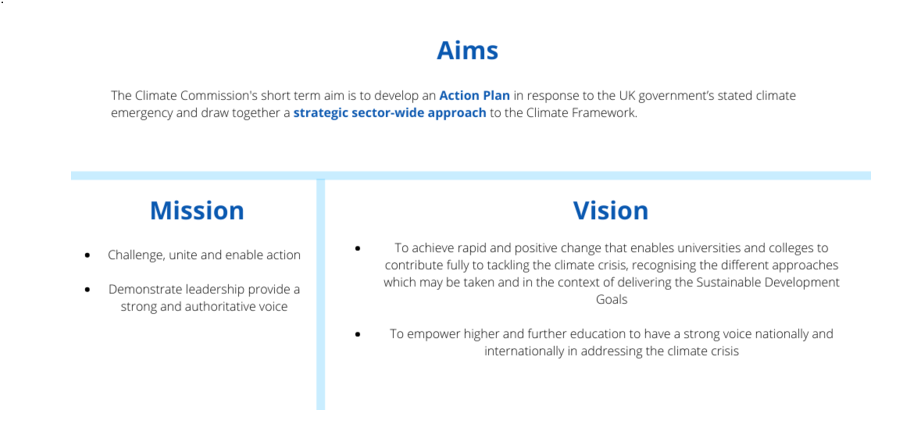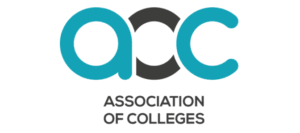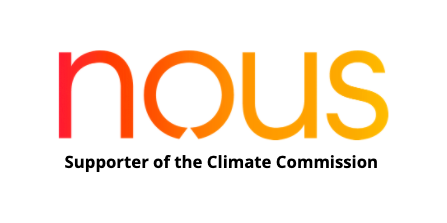Climate Commission for UK Higher and Further Education
Association of Colleges, EAUC, GuildHE and Universities UK have partnered to establish a Climate Commission for UK Higher and Further Education Students and Leaders.
The Climate Commission urge every university and college to sign up to the Race to Zero for Universities and Colleges
As you may be aware, the United Nations Climate Change Conference – or COP26 – is scheduled to be held in Glasgow from 1st to 12th November this year.
This is a huge opportunity for UK Further and Higher Education institutions to be collectively recognised as being at the forefront of the climate damage limitation movement by becoming a Signatory of the Race to Zero for Universities and Colleges.
The Climate Commission for UK Higher and Further Education (AoC, EAUC, GuildHE and UUK) urge you to commit and sign today.
We are looking to showcase UK Higher and Further Education leadership at COP26 at a global level.
Quick Links
- Climate Action Roadmap for FE Colleges
- HE Climate Action Toolkit
- Climate Action for University Chairs Guide
- COY16 Student Statement (Student Commissioners)
- Latest Updates
- Virtual Evidence Gathering Events
- Climate Commission's aims, mission and vision
- Climate Commission's Target Statement, priorities and statements
- Who is involved in the Climate Commission?
- UK Research Centres Mapping
- Student Hub
- Further Education Hub
- Higher Education Hub
Look up the recording of the "Climate Commission: One Year On" event
On 1st May 2019 MPs declared a climate and environment emergency which is being adopted by an ever-increasing number of universities, colleges and sector agencies and bodies. The UK government has legislated to achieve net zero emissions on all Greenhouse Gas (GHG) emissions by 2050 under the 2008 Climate Change Act.
We have therefore launched a Climate Commission for UK Higher and Further Education to catalyse action to create real impact and drive change. Read more about the launch of the Climate Commission here.
What is the Climate Commission?
The Climate Commission is a partnership of Association of Colleges, EAUC, GuildHE and Universities UK. Senior executive-level representatives from each organisation and student representatives make up the Commissioners. EAUC provide a secretariat function. The Commission is UK wide. Commissioners provide direction and leadership to the Commission’s work, act as the visible face of the Commission and play a role in building engagement and consensus within the sectors involved. The Commissioners work with a wider Council that advise and support their work.
The Council is made up of Students and Vice Chancellors or Principals from institutions that have agreed to be part of and contribute to the Commission. We seek to ensure this groups reflects sector diversity.
Aims of the Climate Commission
The Climate Commission's short term aim is to develop an Action Plan in response to the UK government’s stated climate emergency and draw together a strategic sector-wide approach to the Climate Framework.
How will the Climate Commission do this?
As well as being supported by the Council, the Commissioners will seek advice from Expert Witnesses, Sustainability Professionals and Observers to inform their activities. The partnership between the Commissioners and the Council will develop a sector-wide consensus for action. This will cover leadership and governance; estates and operations; learning and teaching; research, partnerships and engagement. The Climate Framework will guide and support all UK and Ireland universities and colleges to be net zero emissions by 2050 at the latest.
The Commission will call upon Expert Witnesses to feed into their work, including during including during the Commission's virtual Evidence Gathering Events. Expert Witnesses are sector professional bodies and other bodies whose knowledge and expertise can enhance the Commission's work.
The Commission also invites Observers to attend Commission meetings. These are sector funding agencies and relevant Government departments. It is important for the Commission to keep all stakeholders informed of activities.
A Think Tank of sector-wide sustainability professionals has been formed and will be a resource to address technical challenges identified by the Commission and to implement and scale Commission output.
The Commission will provide updates to all institutions through our partners – AoC, EAUC, GuildHE & UUK.

Climate Commission Target Statement
Further and higher educational institutions should aim for net-zero Greenhouse Gas (GHG) emissions for Scope 1 and 2 by 2030, as per IPCC recommendations, as a minimum.
There should be significant sector action towards reducing Scope 3 emissions within this timeframe. A first step should be to understand sector Scope 3 emissions and develop a framework that can be used as a basis for understanding the current baseline and establishing a meaningful target that is in line with the ambition set out above.
Scope 3 net-zero GHG emissions should be achieved no later than 2050 (or as per devolved Government targets).
Offsetting Statement
The Climate Commission believes offsetting should be seen as a last resort for residual emissions where all other possible action has been taken using the principles of the Carbon Management Hierarchy of avoid, reduce, replace and offset. The Climate Commission foresee that offsetting will have a role as the sector moves towards net-zero emissions. The Climate Commission consider that offsetting may be higher in the early stages where institutions have ambitious targets but would expect these to scale down as measures are implemented and institutions move from net zero to zero emissions.
Climate Commission Priorities
The Climate Commission has identified five areas that the sector needs focused support on to ensure there is a clear and feasible pathway to reach targets. Other related areas, such as Scope 1 and 2 emissions, are already well documented for the sector and it is felt that focus is not required. The top five priorities the Climate Commission will focus on and develop enablers for are:
- Mobilising the Further and Higher Education voice for influence and impact
- Research and innovation– the funding and scope of research and innovation and maximising its impact
- Measuring and Reporting - Scope 1, 2 & 3 – profiling work underway, developing sector understanding of Scope 3 emissions, and supporting the sector to make significant progress in addressing these emissions
- Deep adaptation – including governance, risk, mitigation and adaptation for the future of our campuses and operations
- Education and the student experience – curriculum development and the climate emergency
Glasgow COP26
The UK has won the bid to host the 26th Conference of the Parties, known as COP26 with up to 30,000 delegates expected to attend the event at Glasgow's Scottish Events Campus (SEC) in November 2020. The UK is leading the world in tackling climate change, being the first major economy to pass laws to end the UK's contribution to global warming. Designed to produce an international response to the climate emergency, the Climate Commission will report their work to COP26 which is a huge opportunity to profile UK universities and colleges and showcase our global education and sustainability leadership.
Please note: COP26 has been postponed due to the COVID-19 pandemic. The Climate Commission has drafted a response to the postponement of COP26 due to COVID-19 pandemic, acknowledging the importance of reducing the severity of the outbreak and emphasising its continued commitment to tackling the climate crisis:
“Rightly, as the world unites to save lives and fight COVID-19, the decision has been taken by the UN to reschedule COP26. Scheduled for Glasgow this November, it will now happen sometime in 2021.
While a setback for the work of the Climate Commission for UK Higher and Further Education Students and Leaders, our commitment and workplan remains unchanged as Climate Commission partners will continue working tirelessly across the sector to deliver the ambition, momentum and agreement needed to tackle the climate crisis which remains at the highest priority for universities and colleges and their 4.5 million students and 549,000 staff in this unprecedented year”
- Climate Commission Partners – Association of Colleges, EAUC, Guild HE & Universities UK
Climate Commission Statements
Climate Commission statement regarding the latest Government targets:
The Climate Commission welcomes the UK Governments greater ambition of a new target of reducing carbon emissions by 78% by 2035 and we welcome the further policy clarification necessary to realize this ambition. Universities and colleges are passionate about tackling the climate crisis and playing their part in achieving the target but we do urge that the policies and actions from the Government are coherent and reflect the ambition and that sufficient funding is made available for the transition. We encourage universities and colleges to reinforce their commitments in reducing their carbon by signing the Race to Zero for Universities and Colleges at https://www.sdgaccord.org/race-to-zero-for-universities-and-colleges.
Climate Commission statement regarding the Offsetting Briefing:
“The Climate Commission for Further and Higher Education welcomes the Carbon Offsetting Briefing launched by EAUC and the COP26 Universities Network today. The Climate Commission urges all universities and colleges to adopt the principles and follow the guidance within their net-zero plans. The Climate Commission welcomes the leadership of a sector-wide initiative to show credibility and direction from the education sector and utilise the expertise we have within our institutions to support universities and colleges to be more ambitious with climate action.”
Climate Commission statement regarding the HEPI Debate Paper:
“The Climate Commission for Further and Higher Education welcomes any debate to encourage universities and colleges to take the climate crisis seriously. The Climate Commission target for the education sector is to be net-zero by 2030, as per IPCC recommendations, for Scope 1 & 2 as a minimum. This is a more ambitious target than the UK Government – which ahead of the UN Climate Ambition Summit has announced a 68% reduction by 2030. However, the Government’s ambition needs to ensure the agencies and regulators also hold this ambition and actions are taken in supporting the education sector to play their part. There is much to do by the Government as seen by Ofsted’s misguided comments which are out of step by not listening to the very students they should be serving. The Climate Commission is supporting the sector in making the net-zero journey through the FE Climate Action Roadmap and the HE Toolkit, but also in taking a whole-institution approach to not only focus on emissions but to include the core purpose of institutions through their learning, teaching and research and ensuring we provide people with the skills and knowledge they need to thrive in changing environments as part of the build back better agenda.”
Climate Commission statement on Ofsted Annual Report launch:
"The Climate Commission for Further and Higher Education welcomes the Government’s ambition in setting a new target to reduce the UK’s emissions by at least 68% by 2030, as recommended by the Climate Change Committee. This is now the time for universities and colleges to review their own targets to ensure they are in line with this ambition.
However, there seems to be a clear disconnect with the Government’s ambition and the actions of its agencies and regulators. This was evident in Ofsted’s Chief Inspector Amanda Spielman’s launch of the annual report referring to environmental causes as a single issue and not relevant in today’s curriculum. Whilst we agree that the climate crisis needs to be grounded on the science, but to ignore the social and economic impacts that this will have is not only misguided but especially damaging to the young people who are the ones that will have to face the challenges and opportunities the climate crisis will bring and need the skills and knowledge to survive. The ‘climate change activists’ Spielman refers to are the very students that Ofsted should be serving. The Government needs to ensure the agencies and regulators actions match their ambition. We welcome Ofsted to engage with the Climate Commission on how we can work together to realise this ambition for the sector and needs of our society and economy."
Climate Commission Supporting Mock COP26
The Climate Commission for UK Higher and Further Education fully support the Mock COP26 event which is youth led and youth ran. It is critical that the youth voice is heard and listened to as a crucial part of the response to the climate emergency. The Climate Commission, which is an unique collaboration across the education sector, is working with universities and colleges to deliver a sector wide response to the climate emergency. The Climate Commission has developed targets for the sector to work towards as well as developing practical tools, such as the FE Climate Action Roadmap and the HE Climate Action Toolkit, to support the implementation and actions to achieving net-zero. The student voice has and will continue to be at the heart of the Climate Commission’s work, through our Student Climate Commissioners and wider engagement with the student body. We look forward to seeing the outputs from the Mock COP26 event and how this can form part of the education sector’s actions to achieving net-zero. Full details can be found at https://www.mockcop.org/















